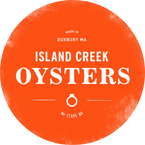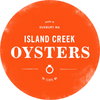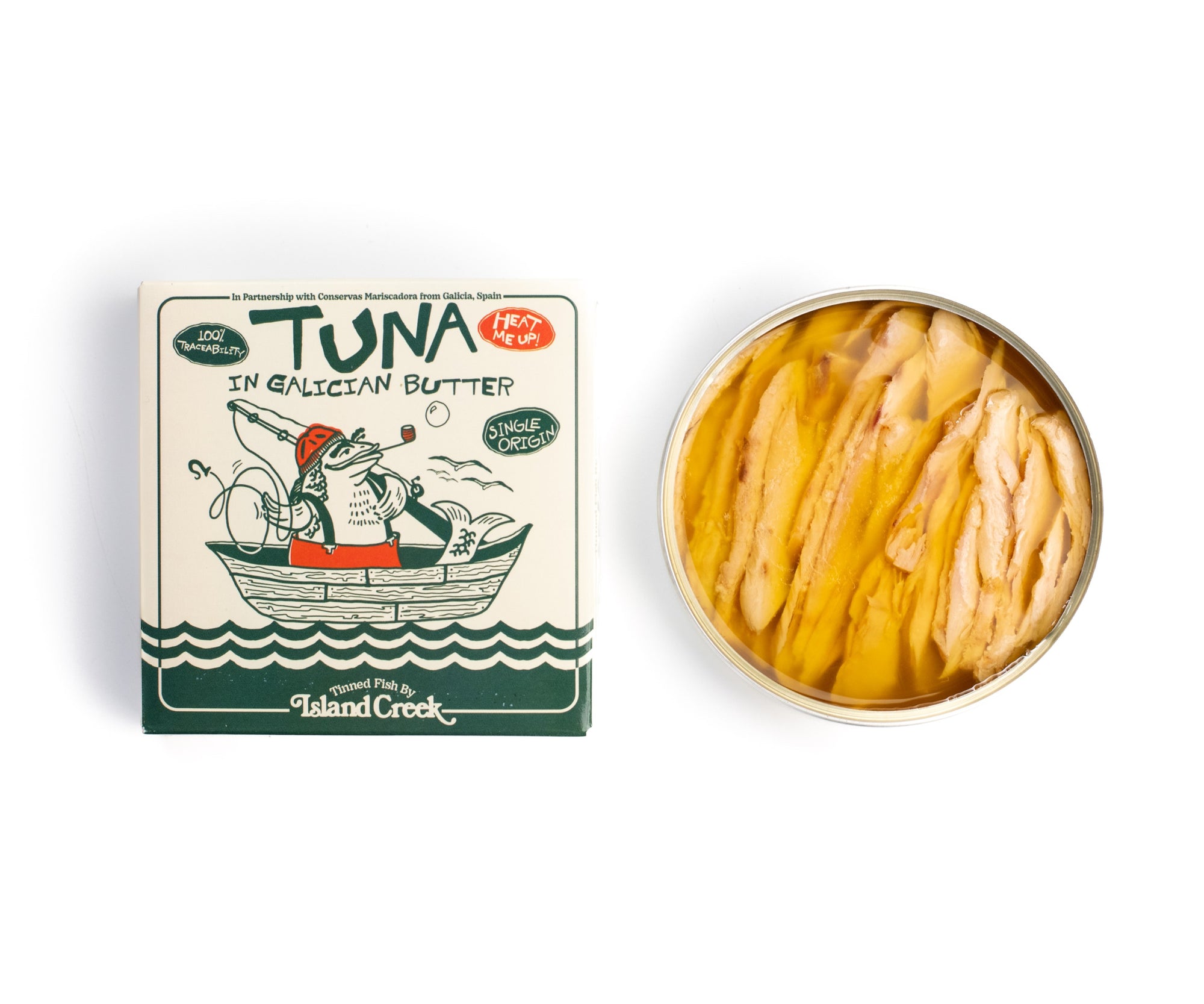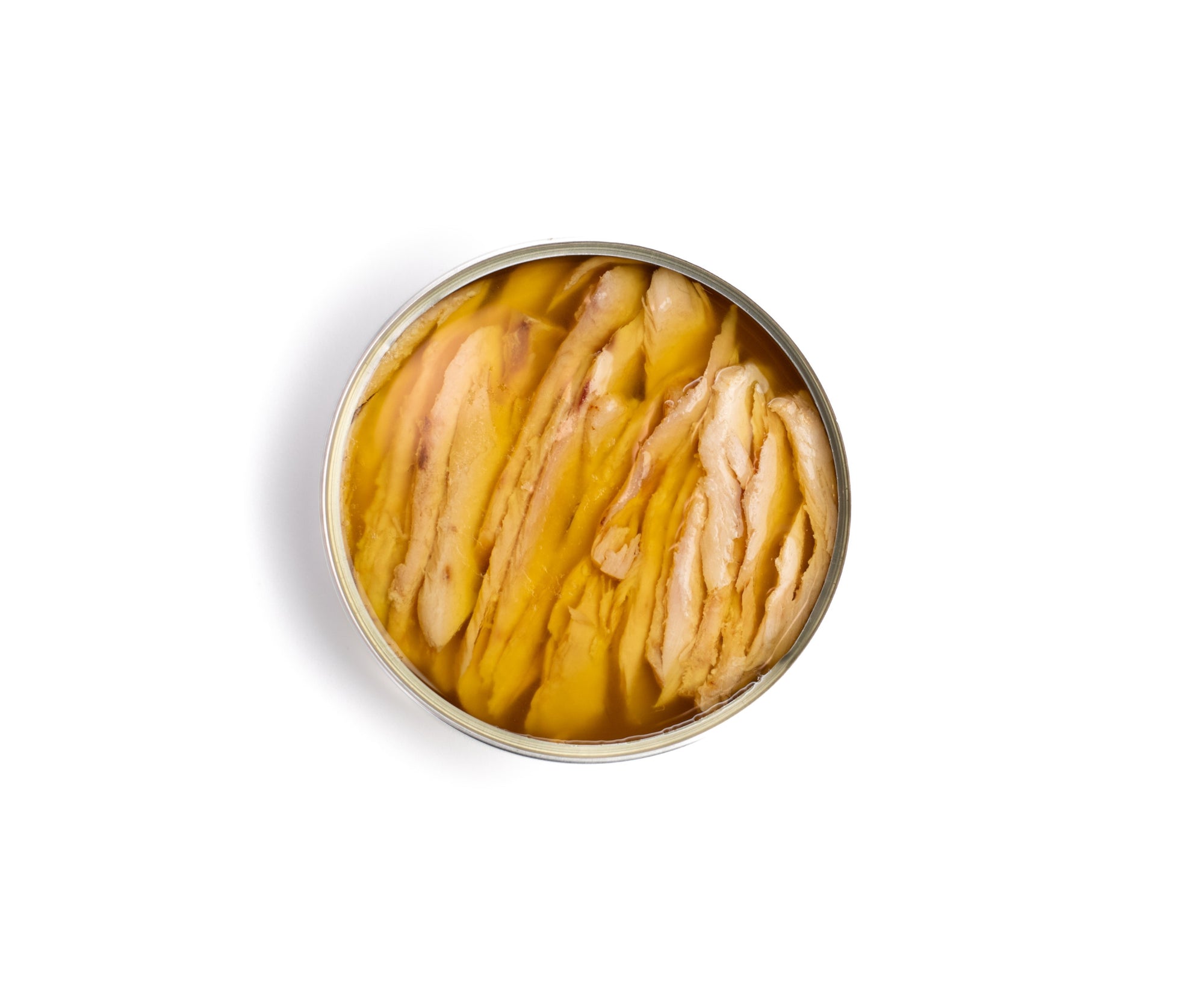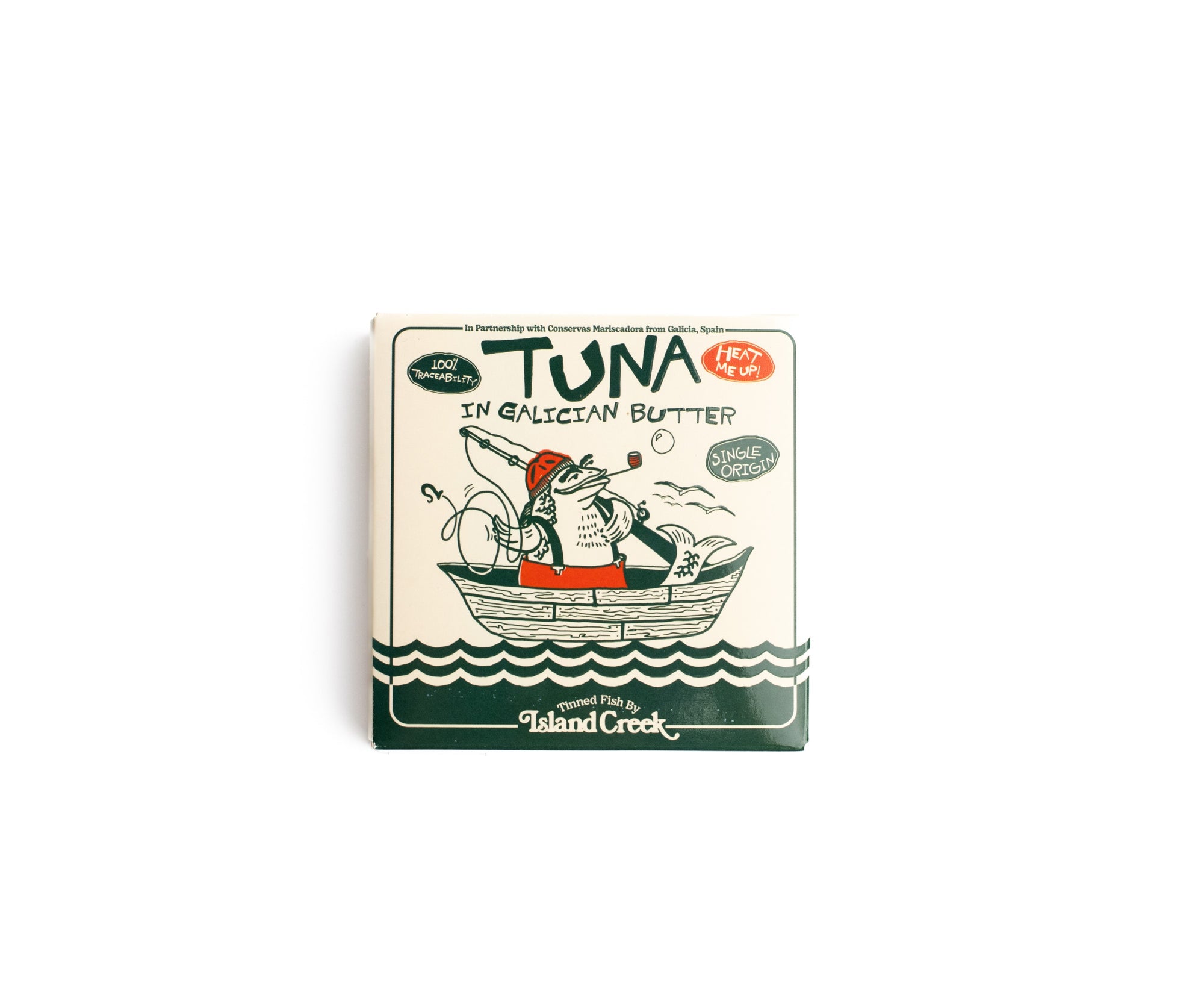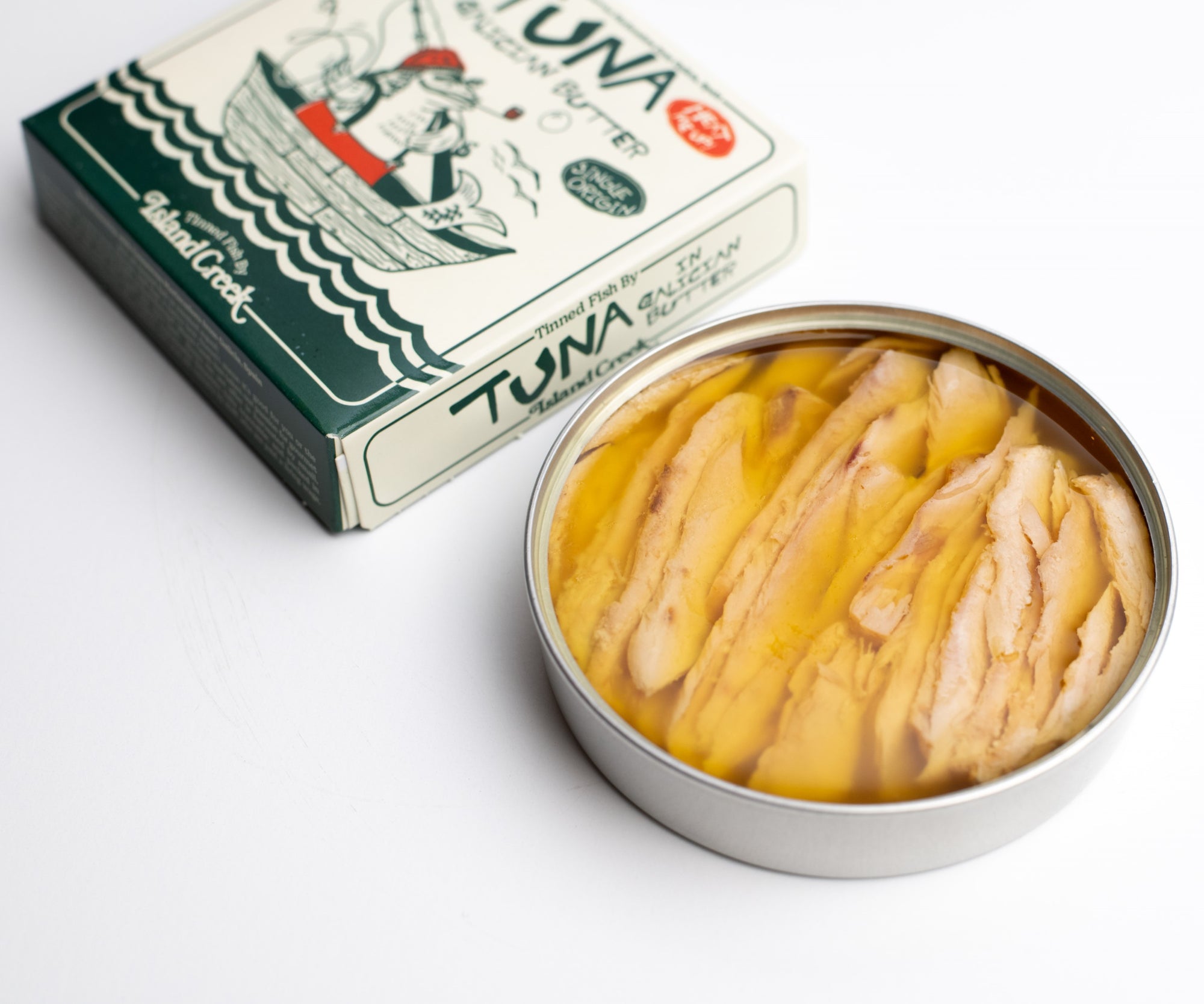TINNED FISH FAQ
- How do I eat/serve tinned fish?
-
Ideally, you can just eat it straight out of the tin—so long as you're buying high quality products (but that's why you're here, isn't it?). For a simple preparation, you can put it toasted sourdough bread or crackers, with a little mustard and pickled vegetables for some balanced acidity.
There are many ways to enjoy this beautiful tradition, if you're looking for recipe inspiration check out this link for some ideas!
- How long will it last once I buy it?
-
Tinned fish lasts a very long time. We generally say it's best to consume the product by the "Best used by" date printed on the tin for best results, however people have been aging tins for generations. These products are completely shelf-stable and should last at least 3-5 years un-opened!
- Why is tinned seafood more "sustainable"?
-
While not unequivocal, there are definitely environmental benefits to tinned seafood. A few reasons include: Increased traceability, shelf-stable, zero food waste, recyclable materials, and lower-footprint supply chains.
- Why is an oyster farm selling tinned fish?
-
Tinning fish is a time-honored way of preserving seafood at peak freshness that has sustained families for generations; not only on the dinner table, but by providing a stable income to small coastal communities around Europe. At one time, tinned fish was even served to inmates in local prisons and was the main protein source for lower income families along remote coastlines. This history is reminiscent of the popularity of oysters here in the United States during the 19th century, when the abundance of wild oysters gave economic stability and affordable protein to working class families for decades until oyster stocks were depleted.
As an oyster farm, we’re diehard evangelists of the benefits of responsible ocean farming. We see aquaculture as an integral part of our future global food system. With the ability to grow shellfish, we reduce the dependency on wild stocks, decrease the excess of nitrogen in our oceans, and create meaningful jobs in coastal communities. Everybody wins.
